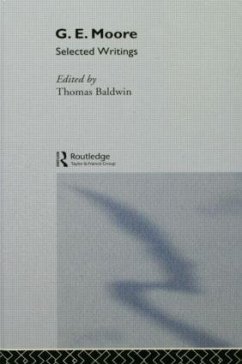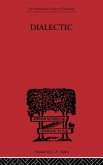G.E. Moore, more than either Bertrand Russell or Ludwig Wittgenstein, was chiefly responsible for the rise of the analytic method in twentieth-century philosophy. This selection of his writings shows Moore at his very best.
The classic essays are crucial to major philosophical debates that still resonate today. Amongst those included are:
_ A Defense of Common Sense
_ Certainty
_ Sense-Data
_ External and Internal Relations
_ Hume's Theory Explained
_ Is Existence a Predicate?
_ Proof of an External World
In addition, this collection also contains the key early papers in which Moore signals his break with idealism, and three important previously unpublished papers from his later work which illustrate his relationship with Wittgenstein.
The classic essays are crucial to major philosophical debates that still resonate today. Amongst those included are:
_ A Defense of Common Sense
_ Certainty
_ Sense-Data
_ External and Internal Relations
_ Hume's Theory Explained
_ Is Existence a Predicate?
_ Proof of an External World
In addition, this collection also contains the key early papers in which Moore signals his break with idealism, and three important previously unpublished papers from his later work which illustrate his relationship with Wittgenstein.
'Moore was extremely clever ... He never dealt with trivial issues but only with matters of central philosophical importance. He never wrote for effect; he never tried to dazzle; his only concern was with the truth ... Baldwin's selection of writings seems to me admirable. They include many of his best and most characteristic things.' - Peter Strawson
'Moore added a dimension of analytical acuteness and precision to the defense of commom sense that was previously unknown and remains unexcelled. His clear and profound analyses are a monument to the power of the human mind to understand itself, the external world, and relation of one to the other.' - Keith Lehrer, University of Arizona
'Moore added a dimension of analytical acuteness and precision to the defense of commom sense that was previously unknown and remains unexcelled. His clear and profound analyses are a monument to the power of the human mind to understand itself, the external world, and relation of one to the other.' - Keith Lehrer, University of Arizona
'Moore was extremely clever ... He never dealt with trivial issues but only with matters of central philosophical importance. He never wrote for effect; he never tried to dazzle; his only concern was with the truth ... Baldwin's selection of writings seems to me admirable. They include many of his best and most characteristic things.' - Peter Strawson
'Moore added a dimension of analytical acuteness and precision to the defense of commom sense that was previously unknown and remains unexcelled. His clear and profound analyses are a monument to the power of the human mind to understand itself, the external world, and relation of one to the other.' - Keith Lehrer, University of Arizona
'Moore added a dimension of analytical acuteness and precision to the defense of commom sense that was previously unknown and remains unexcelled. His clear and profound analyses are a monument to the power of the human mind to understand itself, the external world, and relation of one to the other.' - Keith Lehrer, University of Arizona








